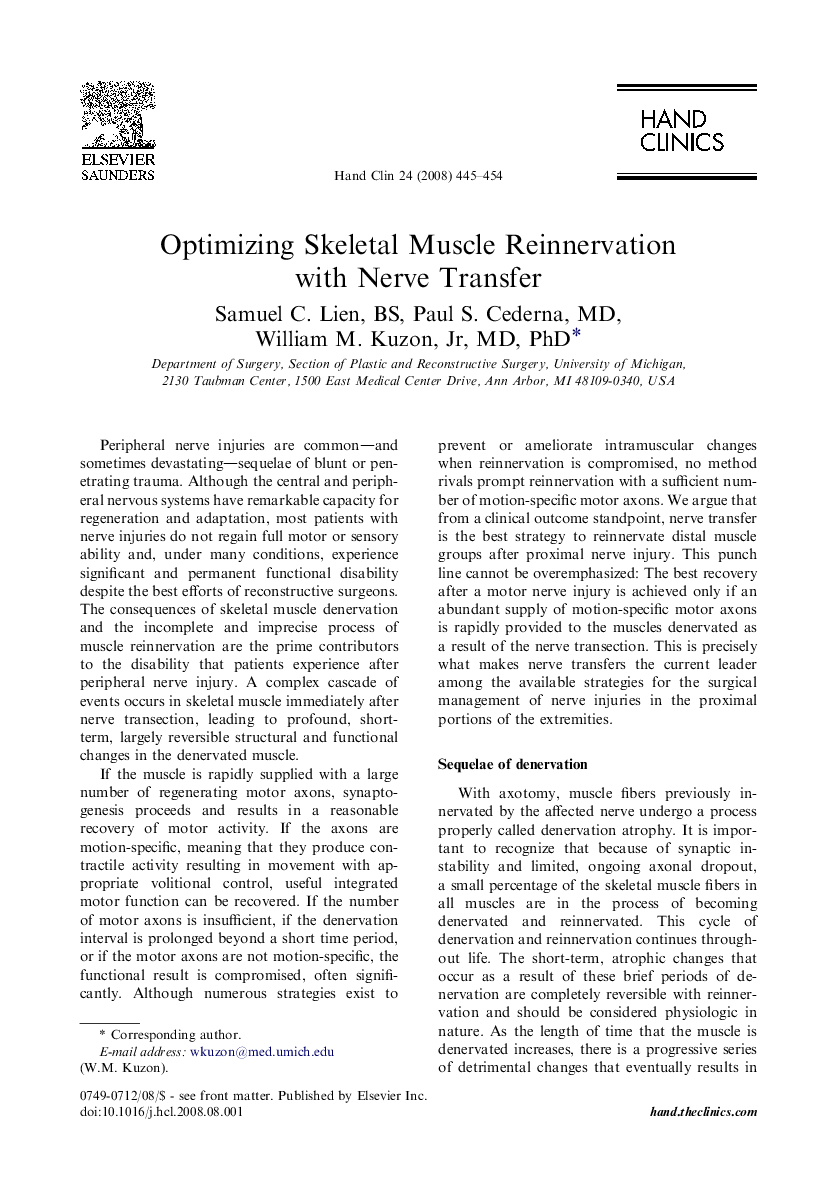| Article ID | Journal | Published Year | Pages | File Type |
|---|---|---|---|---|
| 4059372 | Hand Clinics | 2008 | 10 Pages |
Denervation as a consequence of nerve injury causes profound structural and functional changes within skeletal muscle and can lead to a marked impairment in function of the affected limb. Prompt reinnervation of a muscle with a sufficient number of motion-specific motor axons generally results in good structural and functional recovery, whereas long-term denervation or insufficient or improper axonal recruitment uniformly results in poor functional recovery. Only nerve transfer has been highly efficacious in changing the clinical outcomes of patients with skeletal muscle denervation, especially in the case of proximal limb nerve injuries. Rapid reinnervation with an abundant number of motor axons remains the only clinically effective means to restore function to denervated skeletal muscles.
